Do THIS to Resolve Inter-Personal Conflicts!
Tried and Tested Communication Tips for Personal Relationships
Meera: You never come back home on time. You’re always just hanging out with your friends.
Vaibhav: Last Sunday I was home all the time. Why do you never acknowledge what I do?
Meera: So you think ONE Sunday is enough for you to get away with your absence every other day?
Why did this happen?
Step 1: Attack/Blame
Meera felt unloved and unimportant. But her vulnerability was masked by anger. Which felt like an attack to Vaibhav. “You always…” “You never…”
Step 2 : Defend
Vaibhav feels he’s never good enough for Meera. His vulnerability was masked by defensiveness. “Last Sunday I was home all the time.”
Step 3: Both feel hurt and unheard
Meera feels unheard, and invalidated, and like her feelings don’t matter. Vaibhav feels wrongfully accused, despite him trying hard to be better.
Step 4: Vicious cycle continues
Blaming and defending continue. Neither of them understand, why the other person didn’t understand their feelings.
How to not fall into this vicious cycle?
Choose to Communicate Over Bottling up of Emotions
Bottling up emotions - when you feel uncomfortable voicing your feelings, you might keep it to yourself. Your reason could be any - you’re unsure of what to say, or you don’t think you’ll be heard.
Building Resentment - Acting contrary to one's feelings, like feigning niceness after being hurt, fosters resentment.
Lack of communication impacts the relationship’s longevity and happiness - Resentment will show up in passive aggressive remarks, or withheld affection, and distance. If you want this relationship to work - you need to communicate.
Give a Chance (and Be Curious) vs Making Assumptions
It’s impossible to think that someone who hurt us, could be a good person.
Meera might say:
“Does he really not see that his actions hurt me? Especially when he prioritizes his friends and work over his family, almost everyday!!”
Wouldn’t you too find it hard to assume that Vaibhav still has good intentions? That Vaibhav, despite making this mistake, might still deserve a chance?
The truth is - we don’t know Vaibhav’s side of the story yet. And, we’ll never really know unless Meera tells him how she feels. In other words, let’s be curious.
Replace Blame with Vulnerability
Communicate what hurts you, by being vulnerable. For example:
Meera: Whenever you come late from work, or after hanging out with your friends - I feel like I’m not a priority for you. Could you please talk to me about this? I would like to know whether that’s the case or not... I’m open to hearing what your perspective is.
Meera didn’t attack Vaibhav. She focused on how she feels when Vaibhav does X. To do this - she focused on using “I” statement, rather than “You” statements.
She also offered to hear Vaibhav’s perspective.
But when I’m really angry - it gets difficult to, well…not be…angry
Take a break.
Ideally, before you say something.
But especially, after you’ve said something, and it hasn’t gone well.
Take a break, and re-evaluate.
Can I be vulnerable? Can I tell them my true feelings? Try. Your partner needs a chance. Your vulnerability and honesty is how you give them a chance to validate your feelings, and apologize, and maybe even make it up to you, and do better in the future.
“I shouldn’t have yelled, and blamed like that. The truth is, I feel unheard and invalidated (or unimportant, unloved, like I don’t matter…etc.)…when you do XYZ”
“I feel disrespected when I’ve stated my concerns and you dismiss them.”
Replace Defensiveness with Validation of Feelings
When you’ve been dealt with what Vaibhav faced, you’d defend too! And you might say something like -
“You’re being too sensitive/negative”
“You do the same thing”
“Why do you always have an issue with something”
“That wasn’t my intention”
“I was also feeling this”
Here’s how you can do better when you’re being attacked -
It can be hard to respond to an attack with calmness. And you don’t need to. At least not immediately. State your concern as follows, and take a break. Reflect.
“Let’s both please try not to raise our voices.”
“I feel scared/disrespected/frozen when you raise your voice and yell.”
“Let’s not discuss past issues please? I know it’s important to discuss those too. But for now - can we please address this one, only? We’ll get to those after this, definitely.”
And, once you’ve both taken a break - How can you validate?
Vaibhav could say:
I’m sorry I’ve made you feel this way. You are my top most priority. Without a doubt. Work has not only been a lot these past few weeks, since I’m running for promotion, but it also gets emotionally draining. And I think I’ve been trying to numb that by going out and drinking. It’s not what you deserve. I should have talked to you. It would have helped me feel better sooner.
Vaibhav apologized for being the source of Meera’s hurt.
Took ownership of his actions.
Recognized what he could have done differently to avoid this in the first place
To which, Meera might say:
Oh…I didn’t know you were going through so much turbulence emotionally. If I’d known, I would choose my words more carefully. I’m sorry I blamed you like that, even though your absence has definitely been hurtful and saddening. I hope we can find a way to solve for both of us.
Now both are feeling heard, and validated. It makes them both more open to hear another person’s perspective.
Replace Silence with Vulnerability
Conflict can be really overwhelming for some of us. Even though we may look calm on the outside (i.e. not shouting, not crying, no expressions on the face), but there’s a plethora of physiological responses happening inside the body when we’re in conflict.
To deal with that, we shut down. We do that because we feel -
“I’m always bad. I am never good enough.”
“There’s nothing I can do. So let me just sit silently.”
“Anything I do will be met with more dissatisfaction. I can’t give you what you want.”
“It’s uncomfortable to sit with pain.”
“I’ve shut down. I can’t process what’s going on.”
“I’m keeping myself safe, by detaching.”
“I don’t know how to be vulnerable.”
“If I don’t say something perfect, it’ll worsen things. Perfection is the only thing that will work. And I am far from it.”
What does silence feel like to your partner?
“I don’t exist”
“I’m not a priority. I don’t matter.”
“I don’t deserve love.”
Replace Silence with Vulnerability
“I feel afraid I will not be able to solve this problem. But I really want to.”
“I feel like shutting down. I’m trying not to. It’s getting really overwhelming.”
Take a Break
Being emotionally disregulated makes it harder to respond with calmness. That’s why, a break is a must whenever things start heating up.
Take a break
“I love you. I don’t want us to fight. Can we take a break please?”
“This is starting to get heated. We should take a pause.”
“I don’t want to yell, and I can feel myself starting to get angry”
“I need space right now. Could you please leave the room to me?”
“It’s overwhelming. But I want to say something. Can we take some time off and get back to this topic in half an hour?”
Regulate yourself - take a few deep breaths, feeling your heart rate come down to a normal. Until that happens, keep taking deep breaths.
Avoid numbing activities - Eating food, watching a movie, internet scrolling
Once you’re feeling calmer, ask yourself:
“Why did I feel this way?” (Don’t stop at “I didn’t like XYZ”. Ask why you didn’t.)
“What hurt me?”
“What are my fears?”
“Why am I avoiding this conversation?”
“Did I feel like I don’t matter to this person?”
“Did this person make me feel small in some way?”
“Am I scared of this person?”
“What is the other person seeking from me? What is hurting them?”
“Can I communicate my feelings to my partner in such a way that they can listen to me patiently without feeling attacked?”
Put Words to Your Urges
“My entire body feels like it can explode if I don’t shout. I feel so restless. I need to do something to not feel so anxious. If I can’t shout, I might just sob powerlessly, and crumble.”
“I want you to see me as a good person. It’s hard for me to face that I did something you didn’t like. It makes me feel like I’m bad. And, I’m trying really hard to be not that person.”
“I feel the urge to criticize you right now. I’m unable to see how this is not your fault. But I want your help in making me see that. I don’t want us to get stuck in the vicious cycle.”
“What you’re saying feels unfair, honestly. I feel the urge to just zone out, stop responding. However, I don’t wanna do that. I know it hurts you. Could you help me see what I’m missing?”
Replace Judgement, Attacks and Silence with Empathy
Every conflict is a matter of perspectives.
It’s important to feel heard.
It’s also important to hear.
Show curiosity to understand the other person’s perspective.
Vaibhav might say:
I know my inability to talk to you about this has impacted you negatively. I want to hear more about how it has made you feel. I’m sorry I defended myself. It’s important to me that you see me as a good person. But I understand you feel hurt, nonetheless.
Meera could say:
Even though I have felt disconnected with you ever since you’ve isolated from me, I would still like to know how it’s been like for you - with work. I want you to share your feelings with me. I want to make you feel heard.
Ownership of Mistakes
We always have reasons for why we do something. It’s important to explain those reasons. That’ll help our partner/friend see us more. But it’s also important to own our mistakes.
Expressing Regret: “I’m sorry I yelled at you.”
Accepting Responsibility: “It was wrong. I shouldn’t have done that.”
Restitution: “I know this has hurt you. How can I make it up to you?”
Changes in the future: “I want to change my ways. Can we think of ways how I don’t do this in the future?”
To Sum it Up
There are no perfect relationships. What’s important is to be with partners who want to grow with us. Besides intention to grow and improve, good communication skills are the single most effective way to resolve conflicts.
Intention may not be present in both the parties simultaneously. It may require a nudge. Your side of the work is individual though. It can happen regardless of your partner’s intention. And it may prove to be the nudge that your partner and relationship needs!
I’ve used these tips and they worked for me. I’d be happy to see if they work for you too!
Disclaimer
These steps are not applicable to someone who’s tried communicating in a healthy way - but is met with either silent treatment abuse or verbal abuse; or any other form of chronic serious relationship issues.
Share this post if you find it helpful!

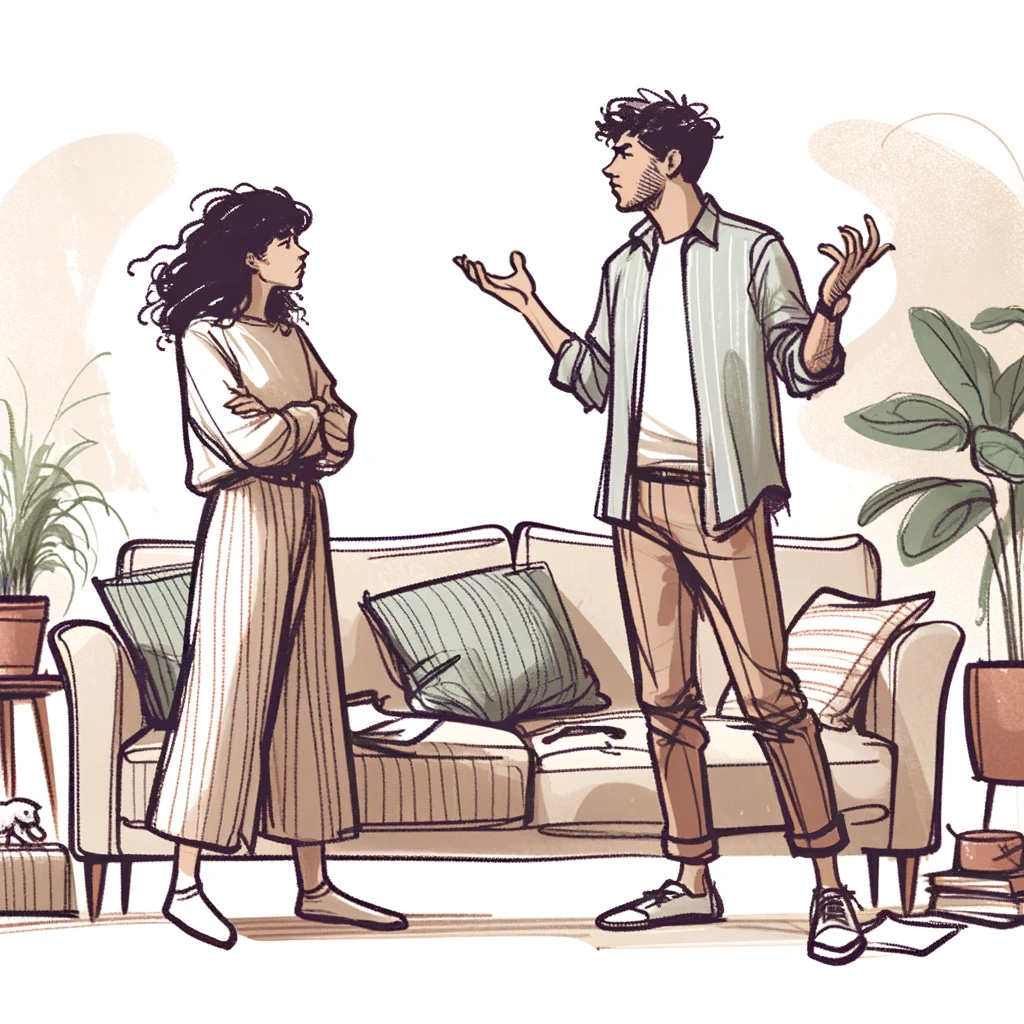
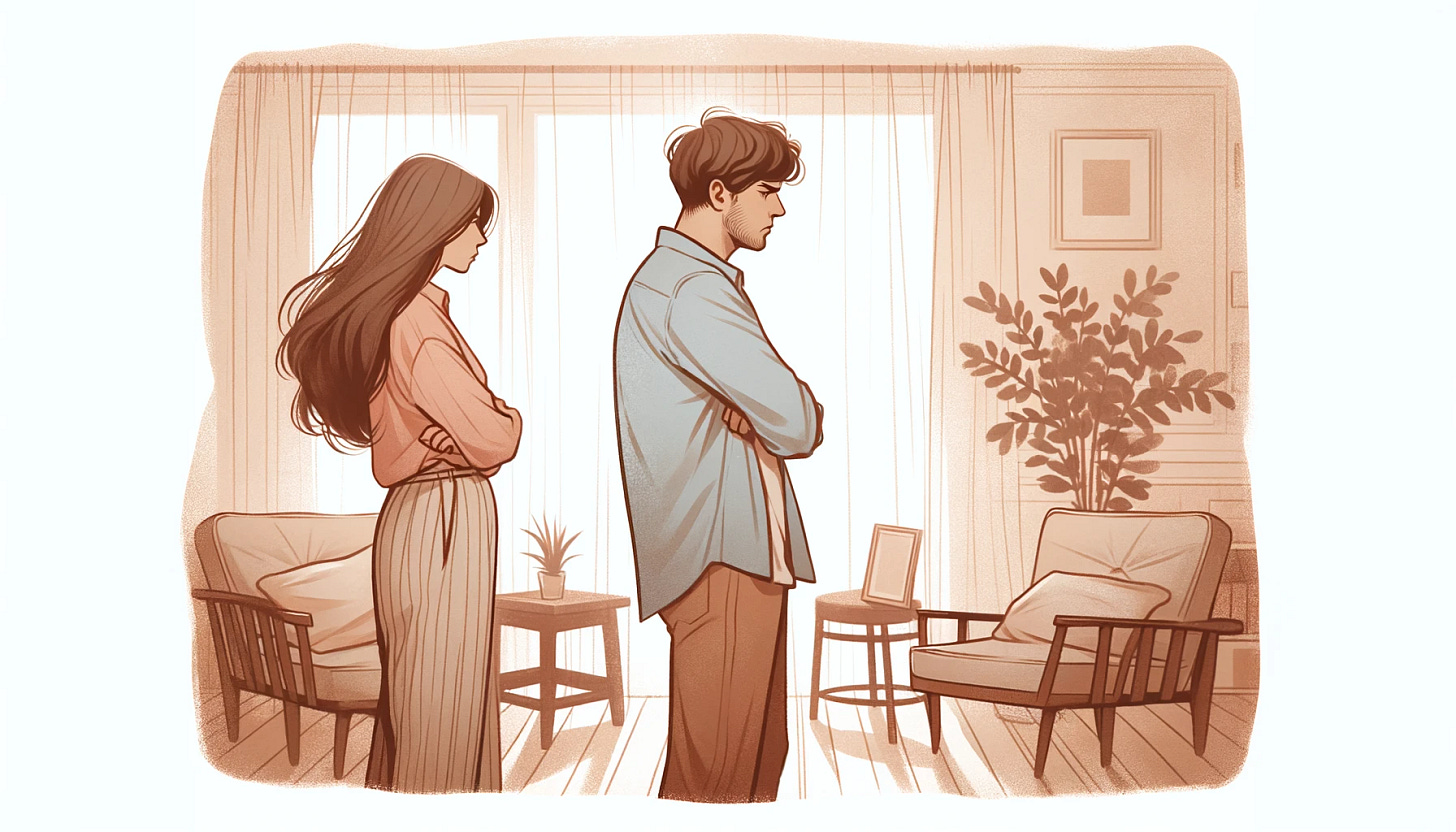

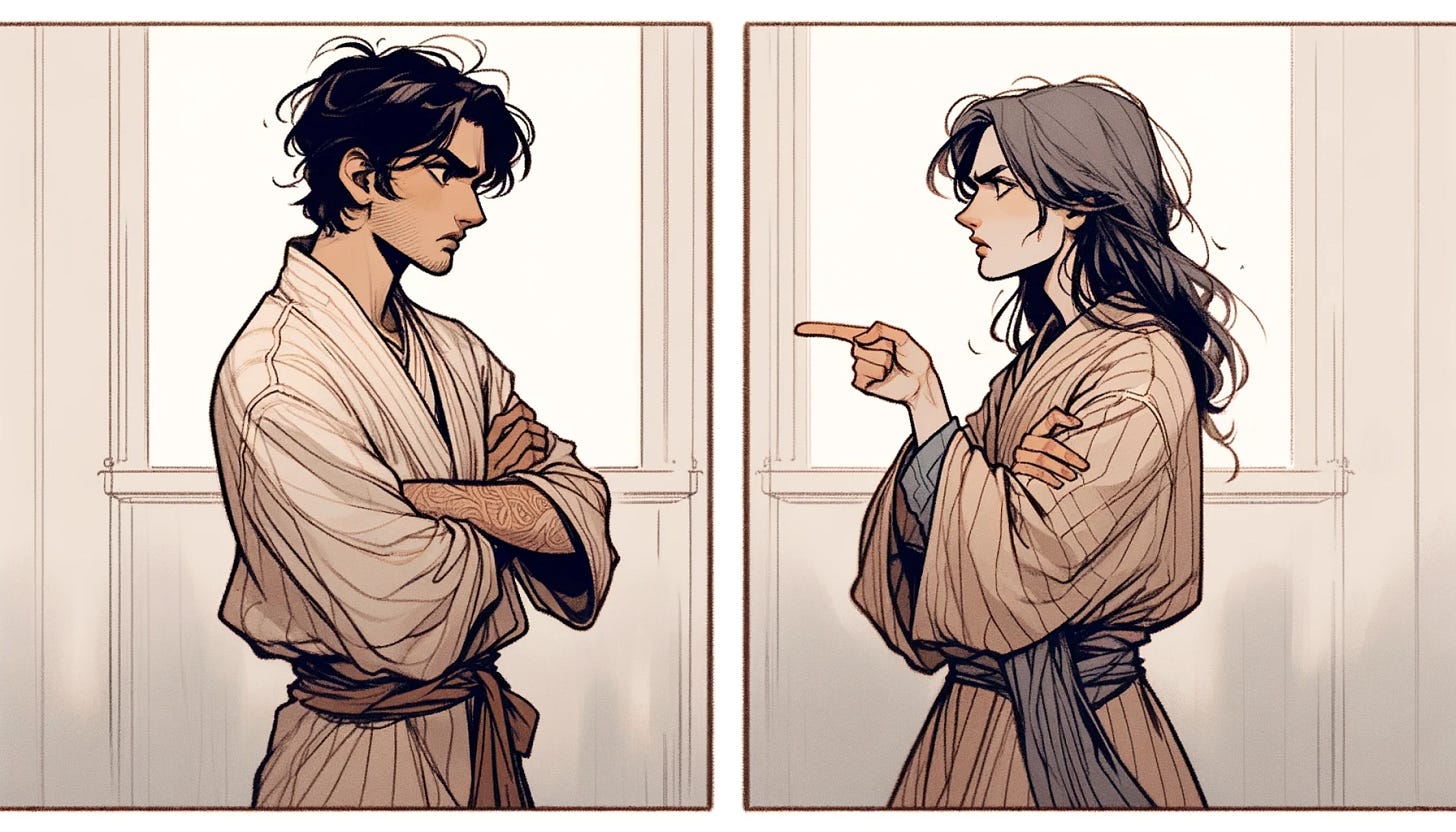
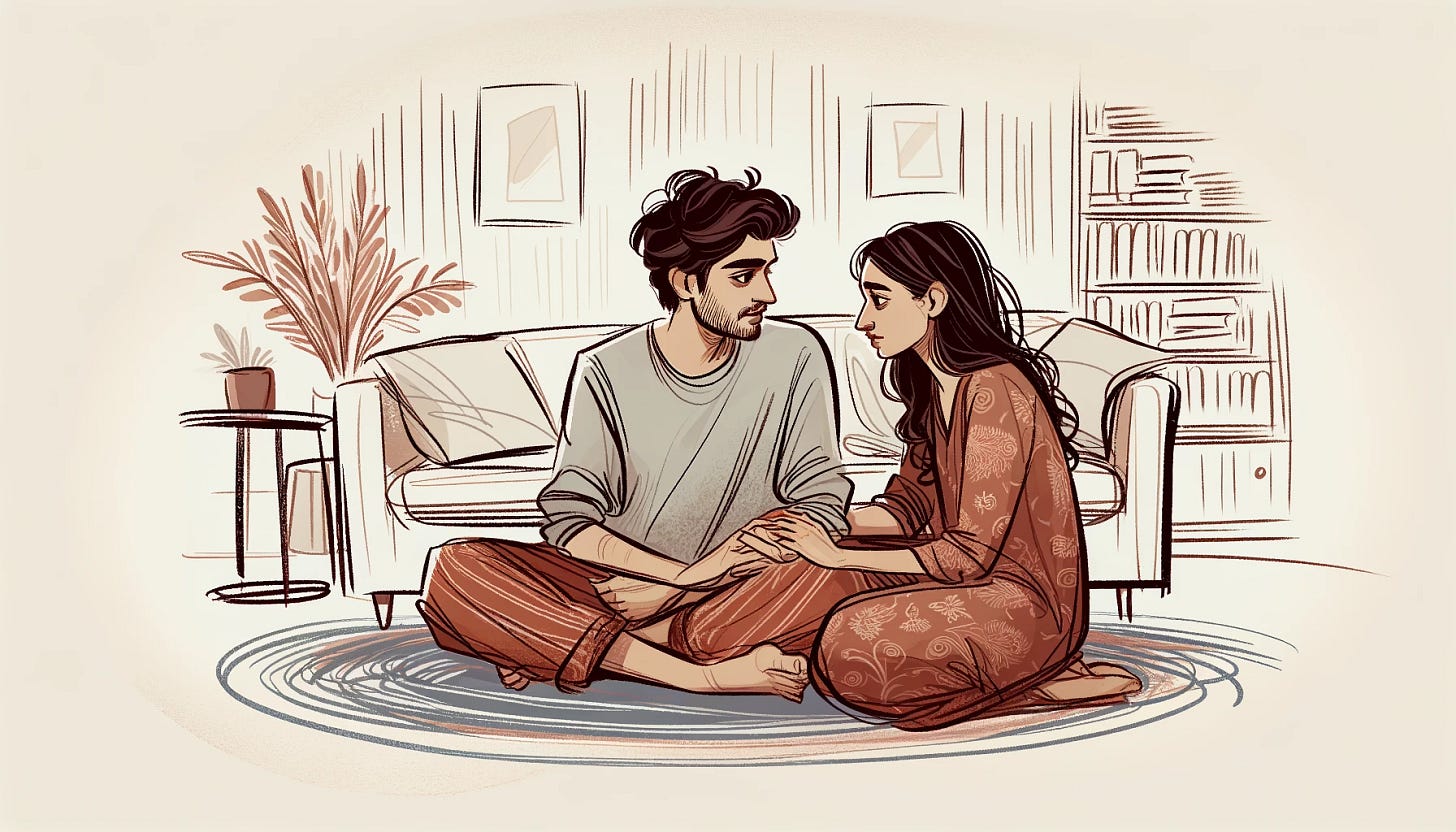


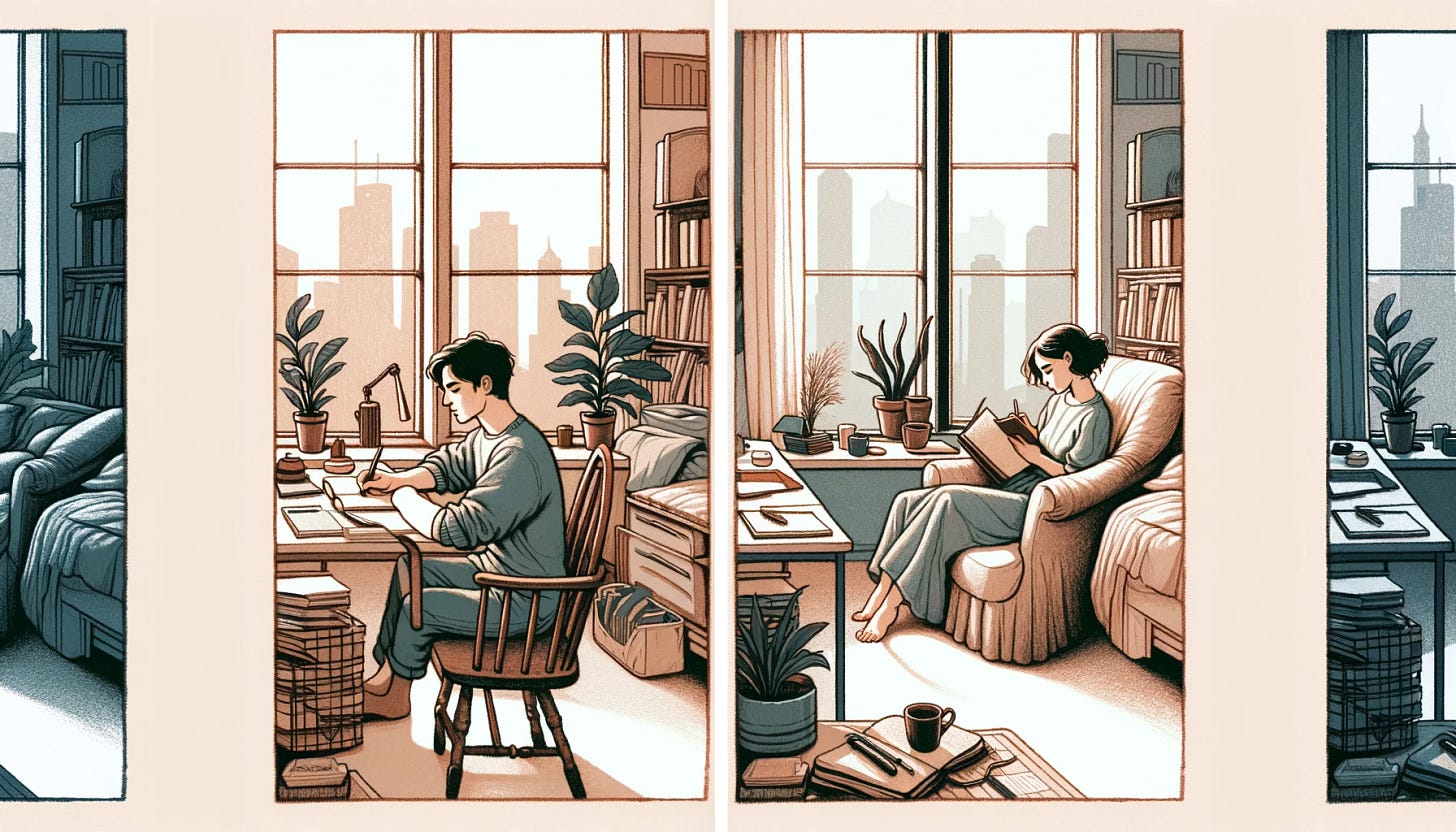

A very meticulously written article. It displays a deep insight !! Well researched and carefully crafted.
Its exhaustive - seems all corners are touched!